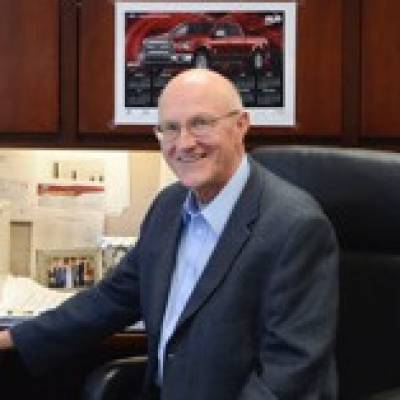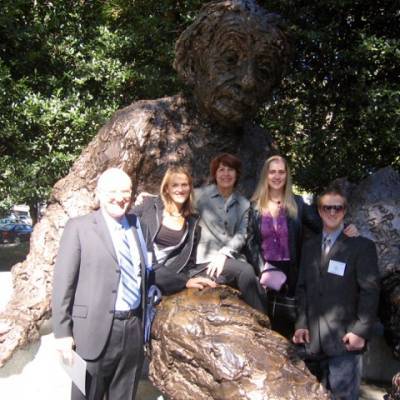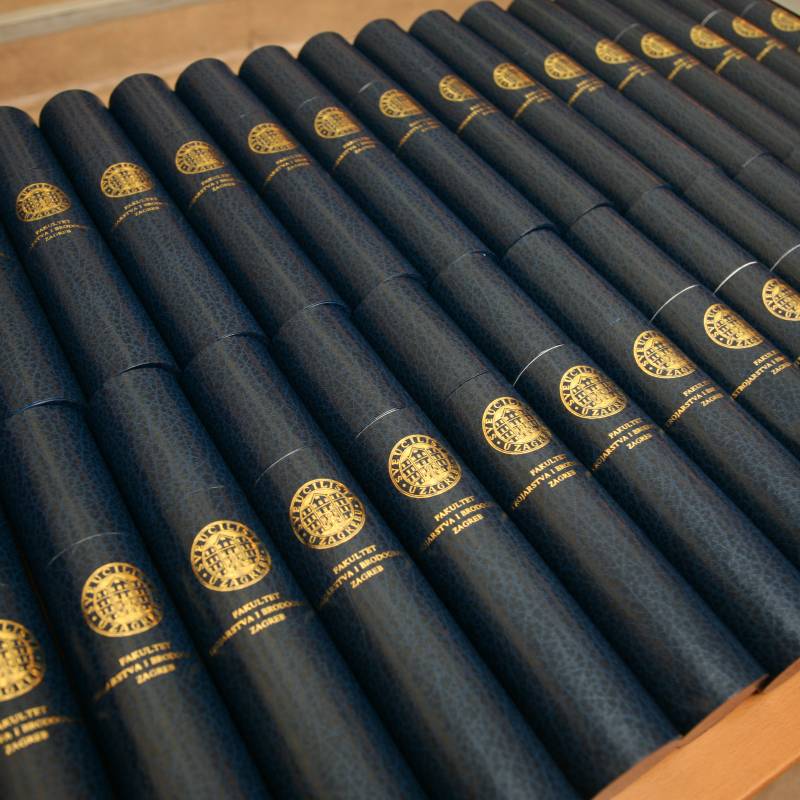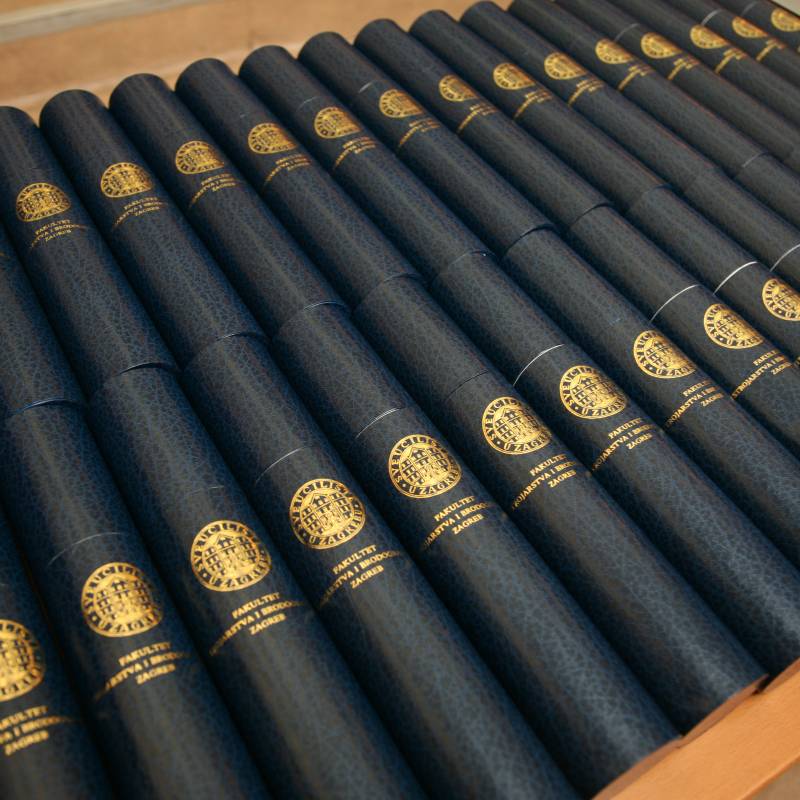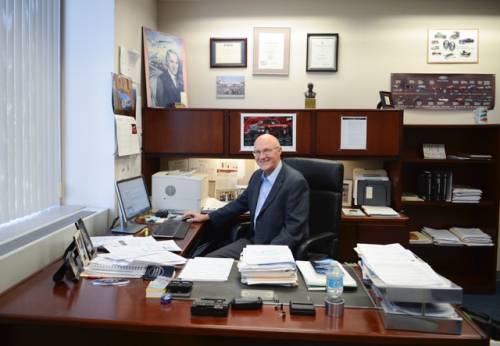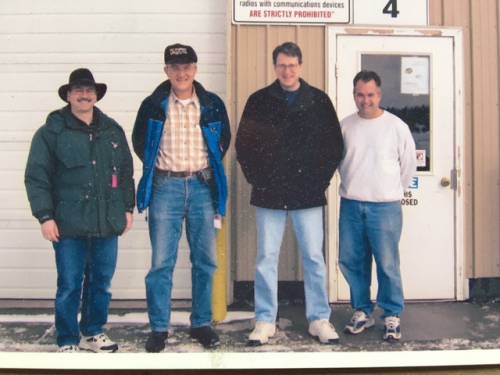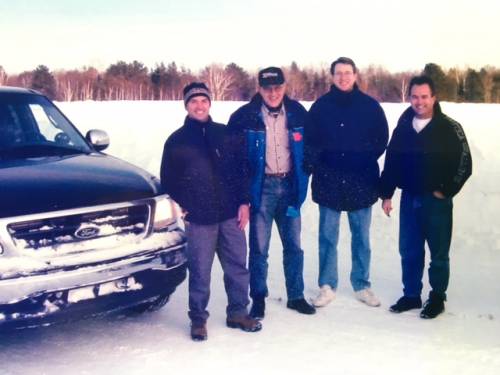Davor Hrovat is the first alumnus of FSB and the first Croatian American to be elected to the American National Academy of Engineering (NAE). NAE is an academy annually electing only about 70 new members from the entire USA. Membership in this prestigious association, which is regarded as the highest professional distinction accorded to an engineer in the USA, is a recognition for his many years he was working at Ford, where he was also named a Henry Ford Technical Fellow (HFTF) in 2006. This is the highest individual technical honour within the company and Hrovat was the first HFTF in the field of automotive control systems. During his 34 years at Ford he held over 100 patents of inventions that were applied in millions of vehicles around the world to increase safety, comfort and performance and to reduce environmental pollution and fuel consumption. Although since 2015 officially retired, he is still very active and mentions with a smile what a good friend of his told once him: “You are in retirement but you haven’t retired.”
Having had relatives in the US in the vicinity of San Francisco, he and his wife decided to cross the ocean upon his graduation in mechanical engineering in 1972. Financially supported by his (now late) mother who was a physician in Libya and on a scholarship awarded by the University of California (UCD), he defended his doctoral dissertation on modern car suspensions in 1979. After two years at the University, he joined Ford to work in research and development. He stresses that he had been receiving job offers from other companies but he never wanted to leave Ford.
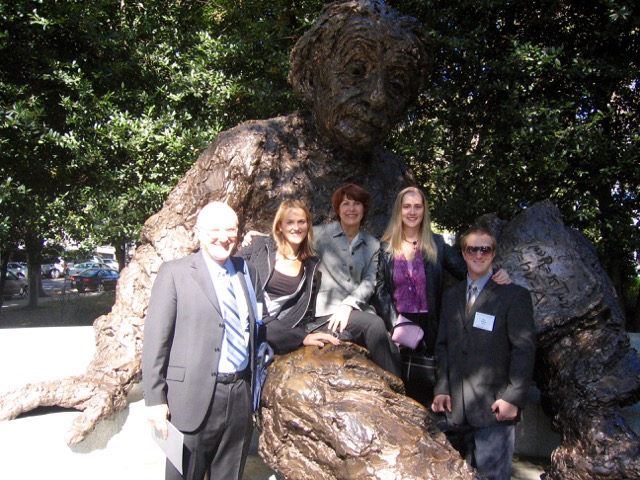
“Already as a secondary school student – I completed the Seventh General-Program Secondary School in Zagreb – I was very interested in cars and motorization, just like my father, who at an early age as a student of medicine was one of the first private owners of a car and a motorcycle in Zagreb, which was before WWII. Four or five classmates and I decided to study mechanical engineering. Studying mechanical engineering was hard, we had to learn a lot, but I was a good and passionate student. After five years only about ten of us, out of about 700 enrolled students, graduated first in our class.” Hrovat has fond memories of Professor Bazjanac. “He always wore a white coat, this was a genuine Austrian-Hungarian or even Swiss school of precision and true professionalism. He would draw 100% straight lines with a chalk, without using a ruler, on the blackboard. I can also remember Professor Devide – his mathematics lectures were pure poetry. Whenever I’m back in Zagreb, it all comes back to me.” He says that he enjoyed witty lectures given by Professor Muftić, a merry fellow, as well as lectures delivered by professors Alfirević, Vučetić and academician Jecić. “All of them, just like many other professors, represented quality that influenced me permanently.”
„Mechanical engineers are down to earth, sometimes even too much, we do not levitate in the air, which is maybe not always appealing but it is stable. We look at things realistically, we are professional and curious and easily adapt to new working environments.” He stresses that mechanical engineering has changed him over the years and that his work at Ford is connected with his primary field of expertise, on the one hand, and with computer simulations, algorithms, innovations, electronics, mechatronics and patents, on the other. “When I retired I was very happy. I achieved my dreams. I’m particularly proud of what my team and I achieved in the area of automotive safety. Unfortunately, after I finished secondary school, there were two fatal car accidents in my immediate family. Those tragedies could have probably been prevented if cars had been equipped with seat belts. So I realised very early how important safety measures are. Although cars are very useful and can give us great satisfaction, people are mostly not aware of the fact that they are at the same time very dangerous.”
Hrovat stresses that his team was involved in developing traction and stability control systems in Ford vehicles, SUVs in particular, applying new computer algorithms, which has earned them numerous awards and recognitions they received by popular US media. For example, the editor-in-chief of Boston Globe said during testing, which was carried out in the presence of reporters that if anybody succeeded in turning over a Ford SUV equipped with stability control, this achievement would be on the cover of the newspaper. “Nobody could turn our SUV over, this software is today installed in all Ford SUVs and trucks and its license is installed in cars manufactured by other car makers. We worked also on numerous other inventions – nowadays in an average car there are between 70 and 100 computers with millions of lines of code. These are very complex machines, in some aspects they are more complex than a plane.” During his brilliant career in Ford Hrovat worked also on some special projects, mostly in the United Kingdom and Germany, as well as on a special task related to the passenger aircraft safety.
Already in 1994 Hrovat tried to establish a cooperation between Ford and Croatian faculties and universities. “I was looking for a talented graduate student who would spend a year at Ford. I wanted to repay the institution and Croatia for the fundamental knowledge I acquired. Finally, after four years, we started cooperation with professors Perić from FER and Deur from FSB. I knew that we needed the best possible professional from Croatia because this would ensure a long-term cooperation with Ford. Professor Deur, who just obtained his PhD degree in 1998, spent a year with us. Although Ford engineers and managers were impressed by his work, he decided to return to Croatia. After that we were cooperating with his FSB team that took part in Ford competitions in which only 15% of applications are awarded and the team won against fierce American and international competition.” Hrovat points out that over the year Ford financed many valuable FSB and FER projects, and the best students had an opportunity to work with Ford. “One of them is Vladimir Ivanović, who joined the Ford research and development after he obtained his PhD degree from FSB. We are all very happy and proud of his successful career – in the meantime he has been promoted to Technical Specialist – Leadership Level. This is a tangible sign indicating that he will be one of the main technical specialists at Ford and in the automotive industry in general in the future too.”
Hrovat says that he was always ambitious and optimistic and that these traits helped him a lot when he moved to the USA as well as throughout his career. “Competition was fierce but at FSB I acquired a sound foundation and I was building everything on it. I was always inspired and enthusiastic about my job and that pushed me forward. The most important thing is to do what you like and do something which you are good at doing, to paraphrase Henry Ford, and to be ready to step out of your everyday shoes and leave your comfort and safety zones. Otherwise there is no success.”
In his free time he occasionally teaches as a guest lecturer. In 2009 he started keeping a diary, in which he noted his list of 77 wishes that he is going to try to fulfil before he turns 77, the so called ‘77-by-77 Bucket List’. “Last year I was flying a paragliding tandem flight, in 2017 I climbed Triglav, in 2016 my daughter Yva and I were kayaking for 17 miles on high seas around the magical island of Kauai... There are still many items on this list but I hope I’ll manage to fulfil most of my plans.”


